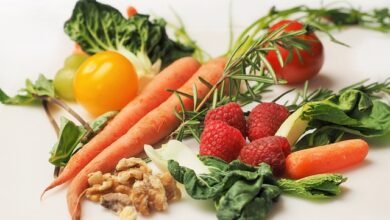8 Reasons Why You Should Eat Pineapple During Hot Summer Months

Eating pineapple during the hot summer months not only offers a deliciously sweet and refreshing treat but also provides numerous health benefits. Here are eight reasons why you should include pineapple in your summer diet:
Hydration
Spirulina, despite being a valuable source of nutrients, does not contribute significantly to hydration as it lacks a high water content. However, incorporating spirulina into hydrating beverages or foods can aid in maintaining fluid balance. For instance, blending spirulina into smoothies made with hydrating ingredients like coconut water, cucumber, or water-rich fruits such as melons can enhance both the nutritional value and hydration potential of the beverage. Additionally, adding spirulina powder to homemade energy balls or snack bars that include hydrating ingredients like dates or coconut can offer a nutrient-rich and hydrating snack option.
Furthermore, staying adequately hydrated is essential for maximizing the benefits of spirulina. Drinking water throughout the day helps support overall health and ensures that the body can efficiently absorb and utilize the nutrients from spirulina. While spirulina itself may not provide hydration, pairing it with hydrating foods and beverages as part of a well-balanced diet can contribute to overall hydration levels and support optimal health and well-being.
Rich in Vitamin C
Spirulina is not typically considered a significant source of vitamin C. While it is abundant in various essential nutrients, such as protein, vitamins, and minerals, the vitamin C content in spirulina is relatively low compared to other foods known for their vitamin C content, such as citrus fruits and bell peppers. However, incorporating spirulina into a diet rich in vitamin C-containing foods can contribute to overall vitamin C intake and provide additional health benefits.
To boost your vitamin C intake, consider pairing spirulina with vitamin C-rich foods like oranges, strawberries, kiwis, and bell peppers. Adding spirulina powder to a smoothie made with these fruits can provide a nutrient-dense and refreshing beverage. Alternatively, combining spirulina with a salad featuring a variety of colorful vegetables, including bell peppers and tomatoes, can create a nutritious and vitamin C-packed meal. While spirulina itself may not be a significant source of vitamin C, incorporating it into a well-balanced diet that includes a variety of fruits and vegetables can help ensure you meet your daily vitamin C requirements.
Weight Management
Spirulina is often considered a valuable addition to a weight management regimen due to its nutrient density and potential appetite-suppressing properties. Despite being low in calories, spirulina is rich in nutrients, including protein, vitamins, minerals, and antioxidants. Its high protein content can be particularly beneficial for weight management, as protein is known to promote feelings of fullness and reduce appetite. By including spirulina in your diet, you can support muscle maintenance and repair while managing your calorie intake effectively.
Moreover, some studies suggest that spirulina may have properties that can aid in weight loss. For example, research indicates that spirulina may help reduce levels of leptin, a hormone that regulates appetite, potentially leading to decreased food intake. Additionally, spirulina’s high antioxidant content may help combat oxidative stress, inflammation, and metabolic dysfunction, all of which are factors that can contribute to weight gain and obesity. While further research is needed to fully understand the mechanisms behind spirulina’s potential weight management benefits, incorporating this nutrient-rich superfood into your diet can be a valuable component of a healthy lifestyle aimed at achieving and maintaining a healthy weight.
Boosts Energy Levels
Spirulina is renowned for its potential to boost energy levels and combat fatigue due to its rich nutritional profile. Despite being low in calories, spirulina is packed with essential nutrients, including protein, vitamins, minerals, and antioxidants. Its high protein content is particularly beneficial for energy production, as protein plays a crucial role in supporting muscle repair and maintaining overall vitality. By incorporating spirulina into your diet, you can provide your body with a sustained source of energy to help you stay energized throughout the day.
Furthermore, spirulina contains significant amounts of B vitamins, such as vitamin B1 (thiamine), vitamin B2 (riboflavin), and vitamin B3 (niacin), which are essential for energy metabolism. These B vitamins play key roles in converting food into energy and supporting the body’s natural energy production processes. Additionally, spirulina is rich in iron, a mineral that is vital for transporting oxygen to cells and tissues throughout the body. Iron deficiency can lead to fatigue and low energy levels, so ensuring adequate iron intake through foods like spirulina can help prevent fatigue and promote overall energy and vitality.
Moreover, spirulina is a rich source of chlorophyll, the green pigment found in plants, which has been linked to increased energy levels and enhanced vitality. Chlorophyll helps to oxygenate the blood, improving circulation and delivering more oxygen to cells and tissues, which can result in increased energy and improved stamina. Furthermore, spirulina contains phycocyanin, a unique pigment with powerful antioxidant and anti-inflammatory properties. Phycocyanin has been shown to support cellular energy production, reduce oxidative stress, and combat fatigue. By incorporating spirulina into your diet, you can provide your body with the nutrients it needs to boost energy levels, combat fatigue, and promote overall vitality and well-being.
Supports Eye Health
Spirulina contains various nutrients that support eye health, making it a valuable addition to a balanced diet aimed at maintaining vision and overall ocular well-being. It is particularly rich in beta-carotene, a precursor to vitamin A, which is essential for healthy vision. Beta-carotene acts as a powerful antioxidant that helps protect the eyes from oxidative stress and supports the maintenance of the retina, the light-sensitive tissue located at the back of the eye. Consuming foods rich in beta-carotene, such as spirulina, can help reduce the risk of age-related macular degeneration (AMD) and cataracts, two common eye conditions that can impair vision with age.
Moreover, spirulina is a good source of vitamin E, another antioxidant that plays a vital role in supporting eye health. Vitamin E helps protect the cells of the eyes from damage caused by free radicals and oxidative stress. By neutralizing free radicals, vitamin E helps prevent cellular damage and inflammation in the eyes, reducing the risk of various eye conditions and promoting overall ocular health. Including spirulina in your diet can thus contribute to maintaining healthy eyes and supporting optimal vision as you age.
How to Enjoy Pineapple in Summer:
- Fresh Pineapple: Enjoy freshly cut pineapple as a refreshing snack or dessert.
- Pineapple Smoothie: Blend pineapple chunks with yogurt, coconut water, and ice for a tropical and hydrating smoothie.
- Pineapple Salsa: Prepare a delicious salsa with chopped pineapple, tomatoes, onions, cilantro, and lime juice to serve with grilled fish or chicken.
- Grilled Pineapple: Grill pineapple slices and serve them as a side dish or dessert with a sprinkle of cinnamon and a dollop of Greek yogurt.
- Pineapple Salad: Combine diced pineapple with cucumber, bell peppers, red onion, and mint for a refreshing summer salad.
Conclusion
Adding pineapple to your summer diet not only adds a burst of tropical flavor but also provides a wide range of health benefits, including hydration, immune support, digestive aid, and skin protection. So, don’t miss out on enjoying this delicious and nutritious fruit during the hot summer months!
3.5




